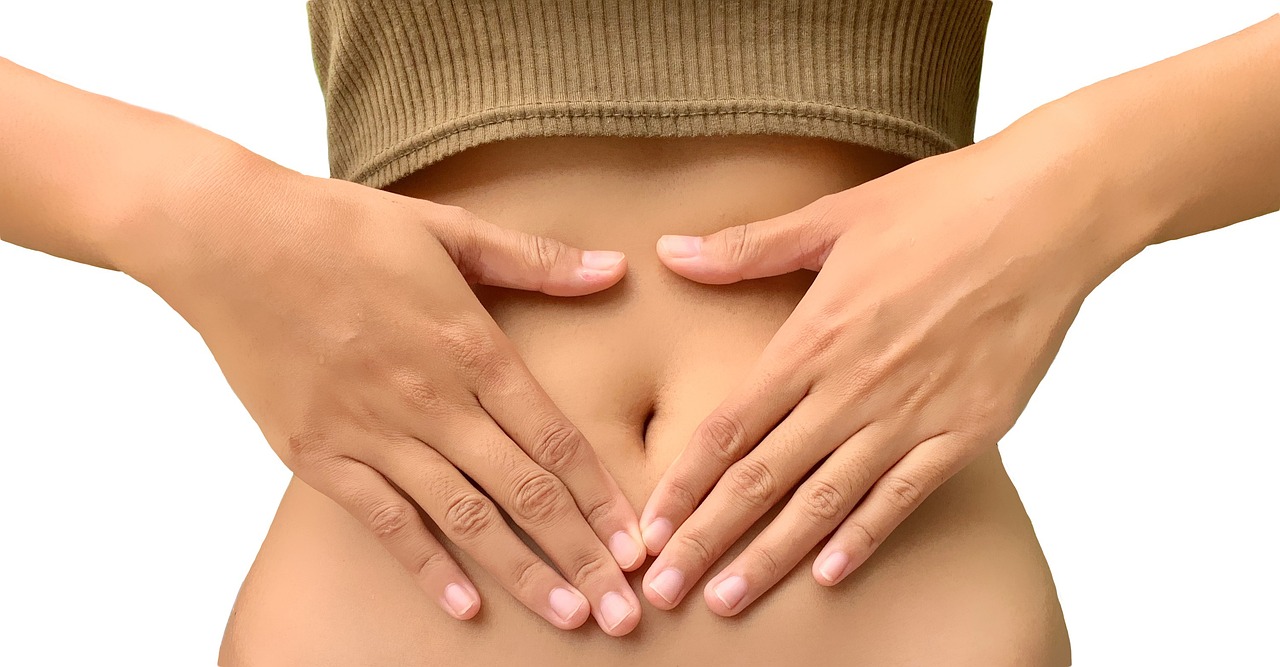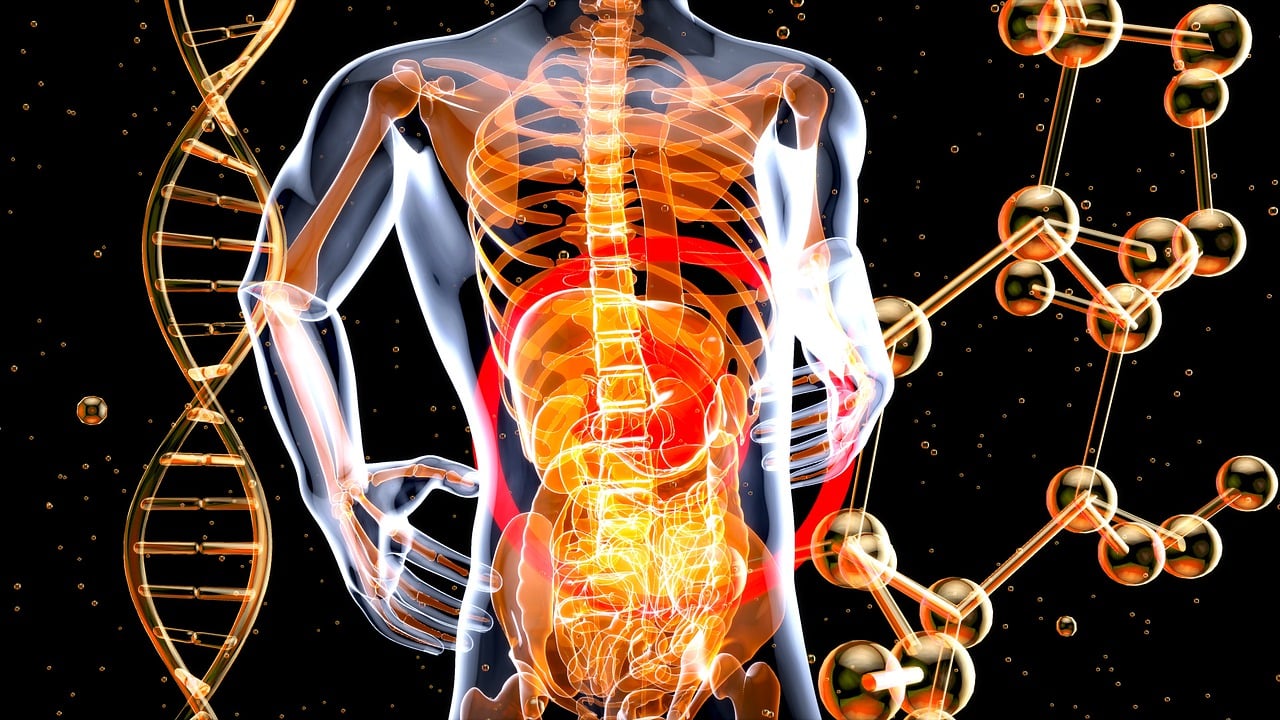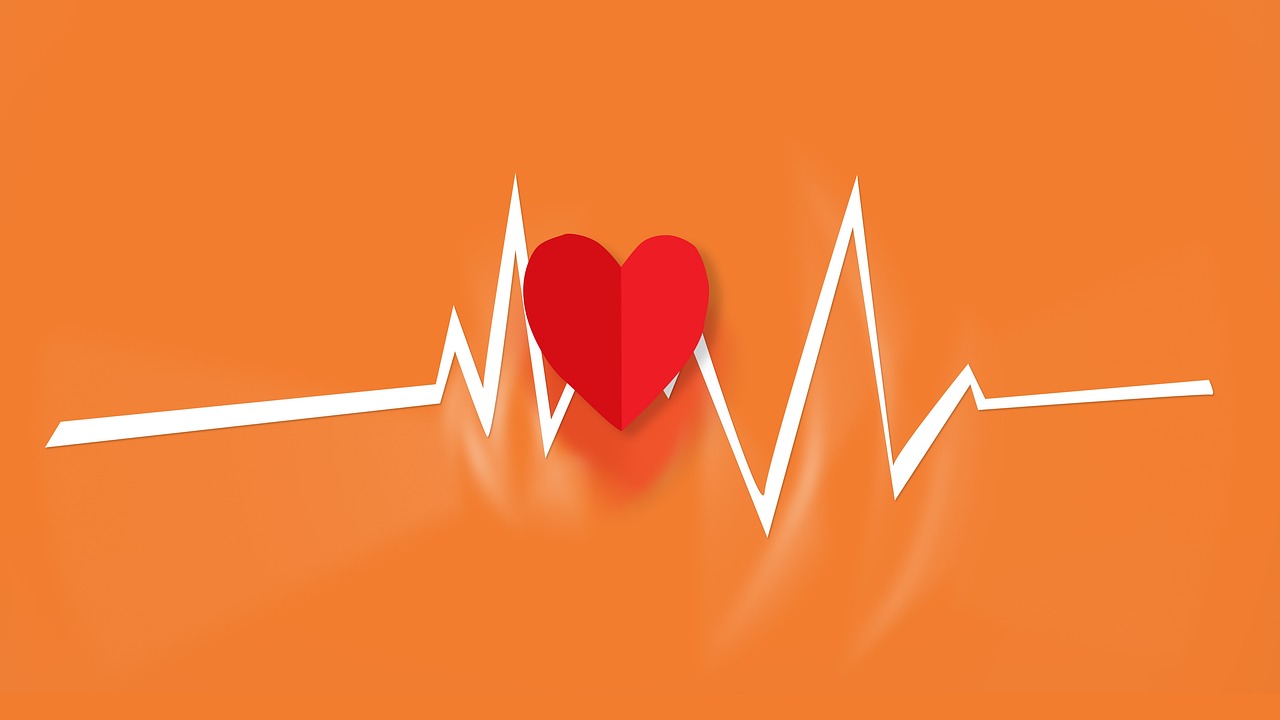Gut health is the optimal state of the digestive system. The health of the digestive system is essential as it affects the health of the entire human body. The small and large intestines are parts of the digestive system whose role is to provide the body with the ingredients necessary to maintain life processes. The gut is also home to bacteria that live in symbiosis with the human body. The gut microbiome has a beneficial effect not only on the gut's health but also on the whole body's immunity.
Neglect of the gut can cause various conditions, including cancer. It is, therefore, essential to take action on gut health, especially for those at risk of gastrointestinal disease. Everybody has experienced gastrointestinal problems at some point, such as bloating or abdominal pain. There are also various symptoms that, if they persist over a long-term period, may indicate a gastrointestinal disease. It is then worth taking appropriate diagnostic action and special care of the gut health.
The gut is also very strongly linked to brain function. Therefore, an unhealthy gut can also be the cause of many psychological problems. If you want a healthy gut, it is advisable to follow the recommendations of doctors and specialists who have linked various factors to it. A significant influence on gut health is diet. Eating healthy food affects the digestive system, preventing various diseases. In addition to it, it is also worth curbing various unhealthy habits. Read on if you want to learn more about caring for your gut health.

The digestive system comprises many organs that work together, and each section performs a specific function, which is only possible to keep everyone's body fully healthy. The digestive system is where the processes of secretion, digestion, and absorption of the nutrients that people take in with food occur. The organs that make up the digestive tract are:
Digestion begins in the mouth. You chew your food when you eat, and your salivary glands help break down the food thanks to enzymes. The food then passes on to the rest of the digestive system through the pharynx and esophagus. When the food reaches the stomach, it is digested by the gastric juices. The liver is also essential for the proper functioning of the digestive tract. The organ produces bile, which is necessary for the digestion of fats and also protects the body from pathogens in food.
The processed food then passes into the intestines, where nutrient absorption processes mainly occur. In the large intestine, the food is formed into feces, which are excreted from the body in this form. The gut also has its characteristic microbiome. The gut microbiome![]() collects all microorganisms, among other bacteria, that naturally inhabit the intestinal area. The composition of the microbiota is highly related to the physiological health of various body areas, providing metabolic functions.
collects all microorganisms, among other bacteria, that naturally inhabit the intestinal area. The composition of the microbiota is highly related to the physiological health of various body areas, providing metabolic functions.
The pancreas, which assists the digestive system, is also essential in this process. This organ's tasks include producing digestive enzymes and controlling glucose levels. All of these elements are very important for gut health. If problems and abnormalities occur in any of these sections, they can cause various symptoms. Therefore, looking after the gut's health is worthwhile so that the entire digestive system can function properly, affecting the whole body.

Diet significantly impacts the gut as food passes through the entire digestive system. Therefore, our food should provide many healthy ingredients for the body and support the digestive system. However, in addition to diet, gut health is also influenced by different factors. Learn about recommendations that can improve the health of your digestive system. Get rid of harmful habits and learn about products that are worth bringing into your diet. However, if you have any problems with your digestive system, we advise you to seek professional advice from your doctor.
Dietary fiber can be found in legumes, vegetables, fruit, and cereals. Although the choice of fiber-rich foods is vast, the standard Western diet![]() often lacks this ingredient. Fiber, on the other hand, is essential for intestinal health. Fiber is a crucial component that influences the diversity of the intestinal microflora. Lack of sufficient fiber in the diet can have a detrimental effect by increasing the population of pathological gut microbes.
often lacks this ingredient. Fiber, on the other hand, is essential for intestinal health. Fiber is a crucial component that influences the diversity of the intestinal microflora. Lack of sufficient fiber in the diet can have a detrimental effect by increasing the population of pathological gut microbes.
Additionally, it influences the maintenance of the integrity of the mucosal barrier. The body does not digest fiber but passes through the digestive system to remove all debris. Therefore, it supports the overall digestive process and eliminates the risk of infection by reducing susceptibility to pathogens. So, if you want to care for your gut health, ensure your diet has enough fiber-rich foods.

Probiotics are live microorganisms, mainly bacteria cultures, which provide health benefits when supplied to the digestive system in adequate amounts. Probiotic products contain microorganisms similar to the bacteria that make up the intestinal microflora. Probiotic microorganisms produce lactic acid Bifidobacterium![]() and Lactobacillus spp
and Lactobacillus spp![]() , which improve the condition of the intestinal microflora. When the microflora lacks an adequate amount of bacteria, health problems can arise.
, which improve the condition of the intestinal microflora. When the microflora lacks an adequate amount of bacteria, health problems can arise.
Therefore, providing the body with additional probiotics in food is a good idea, especially if individuals risk losing healthy bacteria due to illness or medication. Probiotic bacteria also affect intestinal motility, facilitating the digestive process. Probiotics can be supplied with food or are available as supplements. Natural and beneficial bacteria can be found, among other things, in products such as yogurt and different dairy products that have fermented during production.
A diet rich in polyphenols and flavonoids is very beneficial for intestinal health. Polyphenolic compounds have antioxidant![]() and anti-inflammatory
and anti-inflammatory![]() properties—the intestinal microflora processes most of the polyphenols supplied from food. Bioactive polyphenolic compounds promote the proliferation of beneficial intestinal bacteria and, in addition, reduce lactose intolerance and minimize gastrointestinal symptoms such as diarrhea, constipation, and others that accompany inflammatory bowel disease.
properties—the intestinal microflora processes most of the polyphenols supplied from food. Bioactive polyphenolic compounds promote the proliferation of beneficial intestinal bacteria and, in addition, reduce lactose intolerance and minimize gastrointestinal symptoms such as diarrhea, constipation, and others that accompany inflammatory bowel disease.
Polyphenols also have a protective effect on the gut, as they inhibit the growth of harmful pathogens by disrupting bacterial cell membranes. Polyphenolic compounds also have additional functions that act on different human body systems. Among other things, they seal blood vessels, protect the heart muscle, and lower blood pressure. Foods rich in polyphenols include vegetables, fruit, seeds, nuts, and whole grains.
Adequate hydration can also be crucial to gut health. Remember your daily fluid intake, as dehydration can cause unpleasant symptoms and lead to various problems, including digestive issues. Physically active people may need more fluids throughout the day. So remember that drinking enough fluids is necessary for gut health, as regular hydration keeps digestive functions at optimal levels and prevents constipation![]() . However, beware of fizzy drinks, which can have harmful side effects on the gut. Carbonated water can irritate the mucous membrane of the digestive tract and exacerbate bloating and heartburn.
. However, beware of fizzy drinks, which can have harmful side effects on the gut. Carbonated water can irritate the mucous membrane of the digestive tract and exacerbate bloating and heartburn.

Mental health and physical health are interdependent. Stress is detrimental to physical health, disrupting the body's overall homeostasis. Both short-term and long-term stress can harm the digestive system. Experts point to the Gut-Brain Axis![]() , which confirms the link between mental state and gut health. Nerve connections run in both directions, and the gut microbiota is also an essential part of the gut-brain axis. Stress can, therefore, affect gastrointestinal symptoms.
, which confirms the link between mental state and gut health. Nerve connections run in both directions, and the gut microbiota is also an essential part of the gut-brain axis. Stress can, therefore, affect gastrointestinal symptoms.
The effects of stress mainly include changes in digestion motility, changes in gastric juices, increased intestinal permeability, and a negative impact on the regeneration of the mucosa and intestinal microbiota. Therefore, the treatment of some chronic gastrointestinal diseases also includes therapeutic care for people who live under excessive stress.
If you want to take care of your gut health, in addition to proper nutrition, be physically active. Scientists recommend that regular physical activity has a significant positive impact on the digestive process. Exercise can influence intestinal microbiota, improve motility, counteract constipation, and normalize appetite.
Through regular physical activity, mental health is also supported, minimizing stress that is harmful to the gut. However, it is also essential to be cautious here, as some sources report that too intensive and prolonged physical exertion can cause disturbances of the intestinal microflora. Then, mismatched physical activity can adversely affect the state of the intestinal barrier.
Knowing what foods to include is essential for maintaining gut health. However, to improve the performance of the digestive system, it is also worth giving up products that harm it. Such substances include alcohol![]() . Alcoholic beverages, especially if consumed frequently and in large quantities, can overload the digestive tract. Experts point out that alcohol negatively affects the intestinal microbiota and the integrity of the barrier between the intestine and the rest of the body. In addition to this, alcohol can impair immune function in the gastrointestinal tract and beyond.
. Alcoholic beverages, especially if consumed frequently and in large quantities, can overload the digestive tract. Experts point out that alcohol negatively affects the intestinal microbiota and the integrity of the barrier between the intestine and the rest of the body. In addition to this, alcohol can impair immune function in the gastrointestinal tract and beyond.
Simple sugars are a category of foods worth limiting for the digestive system. Excess carbohydrates and sugar harm the gut microbiota. In addition, high sugar consumption correlates with an increased amount of Candida in the body. A high-sugar diet also causes increased triglyceride levels and promotes the development of many diseases. Some studies also show that consuming too much protein can harm gut health. Therefore, exercising moderation in all dietary choices and maintaining a balanced diet is essential.

Many diseases related to the digestive system can cause troublesome symptoms. The well-known philosopher Hippocrates pointed it out long ago: ‘All diseases begin in the gut.' Taking care of gut health protects against these diseases. Prevention is essential, but an unhealthy lifestyle, genetic predisposition, and other factors can lead to various pathological conditions. If you notice worrying symptoms in yourself, you are advised to consult your doctor. Common symptoms of digestive tract problems include abdominal pain, diarrhea, or constipation. In addition, sudden weight loss or blood in the stool are also alarm signals. Especially if such problems accompany you long-term, seek specialist medical help.
A disease that is linked to digestive problems is obesity. The Western diet is related to obesity. Diets that cause a poorly diverse gut microbiome can lead to weight gain. The assimilation of food and the regulation of energy processes are influenced by the microorganisms that make up the gut flora, so disorders in this area can lead to unhealthy fat gain. The gut microflora is necessary to control functions such as metabolism, energy balance, fat storage, and modulation of hormones that control feelings of hunger.
Dysbiosis, or disturbed gut flora, can cause inflammation in the body. Studies have noted that inflammation caused by dysbiosis is also linked to cardiovascular disease. Cardiometabolic diseases can, therefore, develop in people who lead a gut-unhealthy life. Heart health is mainly affected by a high-fat diet rich in saturated fatty acids.

Metabolic diseases such as diabetes are strongly linked to the gut microbiota. Studies have noted that the gut dysbiosis present in people with diabetes contributes to reduced insulin sensitivity and poor glycemic control. An abnormal diet that alters the microbiota affects metabolism and causes inflammation. The rationale that the gut microbiota can affect insulin sensitivity and sugar and lipid metabolism leads to the hypothesis that changes in the gut flora may contribute to the pathogenesis of diabetes.
Inflammatory bowel diseases are a large group of diseases that include chronic inflammation within the gastrointestinal tract. The most common inflammations involve the intestines. Experts surmise that not only genetic but also environmental factors play a role in the development of IBD, such as non-hereditary factors such as an unhealthy, processed food-based diet and an unhealthy lifestyle should be considered in the aetiopathogenesis of these diseases. Studies indicate that intestinal microbiota composition is also altered during such diseases. Dysbiosis can, therefore, cause immune activation and intestinal inflammation.